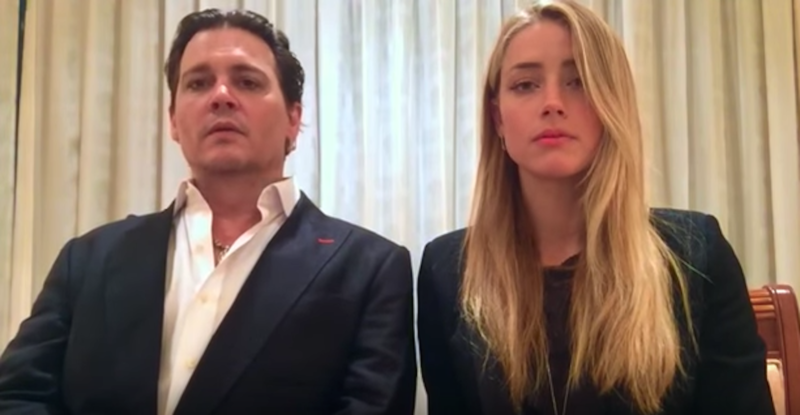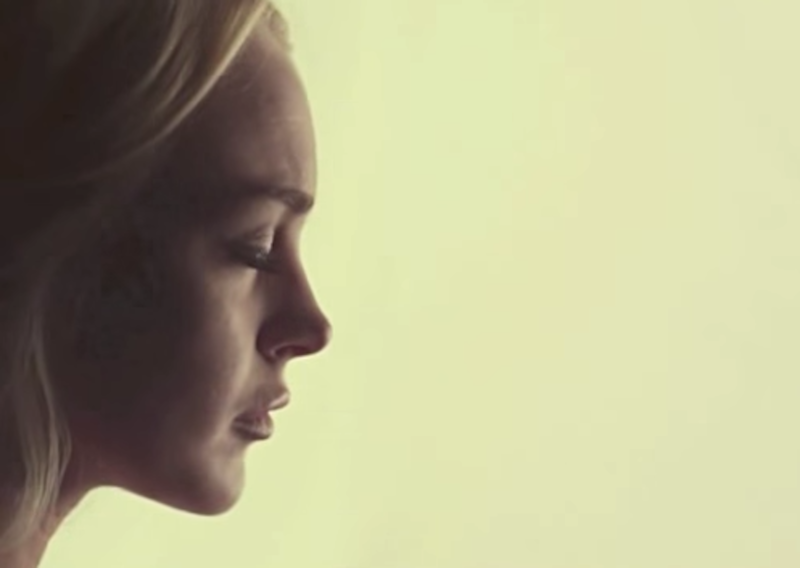It sometimes does, but as a country, we struggle to keep the conversation going past the initial shock, and ultimately tend to let it go. To make matters worse, our collective response to incidents of celebrity domestic violence tends to vary according to who’s on the receiving end and who’s alleged to have committed it.
Amber Heard knows all about this. Since she filed divorce papers and a restraining order against Johnny Depp, she has suffered through a disgraceful amount of speculation about whether her accusations are financially motivated. Even with witnesses to violence committed against her by Depp; even after photos of her bruised face adorned the cover of People magazine; even after she said she would donate any compensation from a related lawsuit to a domestic violence charity, the idea that Heard must be making it all up for a payout continue to persist.

Over the weekend, when video footage leaked of a manic Depp smashing up the couple’s kitchen, Heard was still put under enough pressure over it that she had to give E! a statement denying she was the person who released the clip. The ugly truth is that Heard is significantly less famous and less beloved than Depp, so it’s on her, over and over again, to defend herself, even though she is quite obviously the victim here.
A similarly heinous public response occurred last year following porn actress Christy Mack’s savage beating at the hands of MMA fighter, War Machine. A shocking number of tweets suggested that Mack ‘s professional and personal choices were directly responsible for her ten broken bones, lost teeth, and face so swollen it rendered her unrecognizable. The social media message was, at least initially: if you have sex on camera and your boyfriend beats people up for a living, then you’re pretty much asking for it.
Thankfully, a number of mainstream websites picked up the story, called out the critics, and the incident ultimately became a valuable discussion about the consequences of living in a culture that dehumanizes women who make a living by being overtly sexual. It was the same conversation that was needed back in 1998 when coverage of Pamela Anderson’s beating at the hands of Tommy Lee was often more preoccupied by the fact that she was holding her son at the time, than it was with the injuries she received.
As with the Christy Mack case, a similarly useful discussion was prompted by video footage of Baltimore Ravens running back, Ray Rice, knocking out his fiancé inside an elevator, then casually dragging her unconscious body away. Before the footage emerged, public reaction was at a minimum. Afterwards, outrage quickly spread across the country and forced the NFL to up Rice’s absurd two-game suspension to an indefinite one. Footage shouldn't have been needed to provoke this response -- but at least there was one.
Undoubtedly, though, America’s most famous domestic abuse survivor is still Rihanna. When photos of her battered face emerged after Chris Brown’s now-infamous attack, the world let out an immediate and collective wail of horror. It’s only sad that all that shock and disdain evaporated quickly once it became obvious that the singer had reunited with Brown, which highlighted a frustrating lack of understanding about the psychology of domestic violence and how it affects survivors.
To this day, Chris Brown’s career hasn’t particularly suffered, but neither have the legacies of a plethora of other musicians who’ve attacked women -- from John Lennon to Dr. Dre. Meanwhile, the movie industry has, for decades, demonstrated a stunning ability to ignore violence against women as long as the perpetrators are well-liked enough artists: Sean Penn, Roman Polanski, Alec Baldwin, Michael Fassbender, Sean Connery, Wesley Snipes, Charlie Sheen… the list goes on. And on. And on. And on.
All things considered, perhaps the plight of Lindsay Lohan was largely ignored last week because we, as a culture, have become so desensitized to famous cases of domestic violence. We watched that Ray Rice video play over and over on the news, and we know every mark on Rihanna’s face the night she was attacked. Lohan didn’t end up with a black eye, and she hasn’t made a good movie for a while, so the media is about as interested in her plight as it is in those other 4,774,000 American women dealing with abusive partners.



